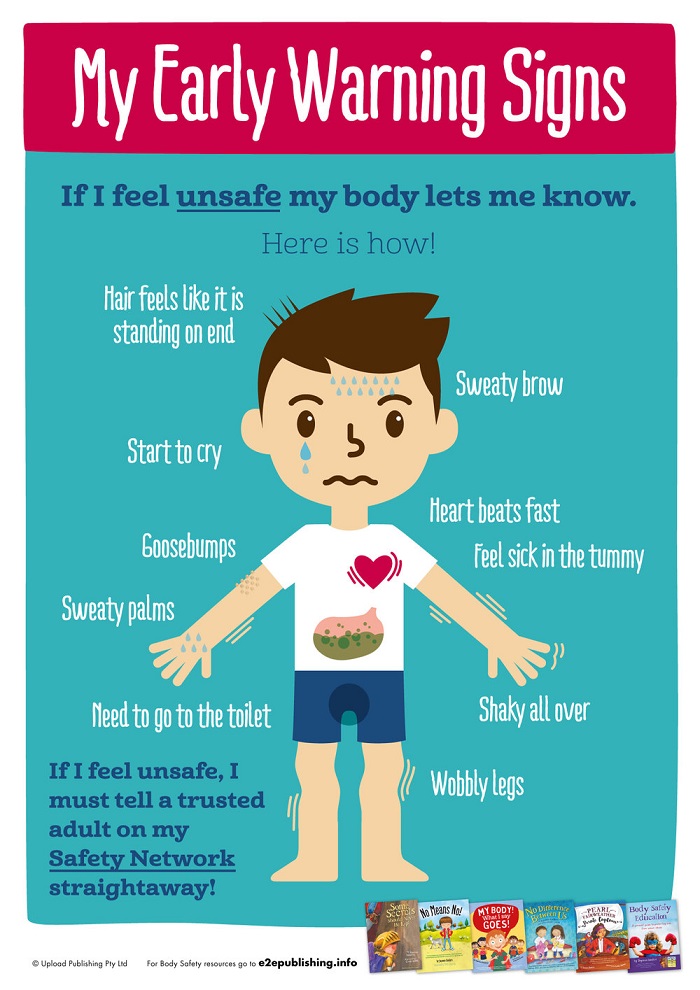In these times when sexual abuse is rampant, some body autonomy information is key.
In early September 2018, 35-year-old Timothy Dogo confessed to raping a 14-year-old girl in Tufa, Gurara Local Government Area of Niger State.
He said he had raped more than four under-aged girls in the area before his arrest.
According to him, “There was nothing to show that she is a teenager, she looks like a 20-year-old girl, I never knew that she is under-age; otherwise I wouldn’t have tried it in the first place.
“I raped her because her looks turn me on each time I set my eyes on her; there was this spirit that would tell me to make love to her and that was why on that fateful day, I dragged her into an uncompleted building to commit the act.”
The story is hardly different from an earlier incident which occurred in February 2018, in Lagos where 39-year-old trader, Sammy Udi, was charged before an Ikeja Chief Magistrates’ Court, Lagos for allegedly defiling his neighbour’s a nine-year-old daughter.
The Police Prosecutor, Insp. Clifford Ogu, told court that the accused defiled the girl in his room when her mother sent her to his house to recharge their fan.
“When she got there, the accused shut the door and had sexual intercourse with her and asked her not to tell anyone.”
All year round there are reports in mainstream and social media about rape cases. The metro or city sections of newspapers like their crime sections report cases of adults sexually abusing minors as young as three years of age. The geography of these incidences cover the whole country.
The narratives are often the same; a child sexually exploited by a known or unknown person and asked not to report it or is threatened with death.
According to the National Sexual Violence Resource Centre (NSVRC) one in four girls and one in six boys will be sexually abused before they turn 18 years old and 34% of people who sexually abuse a child are family members. The study also says 12.3% of women were age 10 or younger at the time of their first rape/victimization, and 27.8% of men were age 10 or younger at the time of their first rape/victimization.
With UNICEF, estimating that two million children, the majority of them girls, are sexually exploited in the multi-billion-dollar commercial sex industry, it is important for children to learn body autonomy and the tell-tale signs of possible sexual abuse and exploitation.
Rape, in Nigeria as in many other parts, is one of the most under-reported crimes for reasons such as stigmatisation and lack of faith in the police.

According to a study by NOIPolls, a country-specific polling service developing opinion research in Nigeria, “seven in 10 Adult Nigerians (67%) think there is a high prevalence of child rape in the country while three in 10 (31%) personally know of a victim of Child Rape in their local communities.”
The study also said, “four in 10 (36%) Adult Nigerians, representing the majority, claim that most often the offenders involved in the incident of child rape are close family relatives and neighbours (33%). Also almost half (49%) of those that personally know a victim claim they involved children aged between 7-12 years of age and, 78% of this group mentioned these cases were reported to local police authority.”
Parents need to teach children that their bodies are theirs and they can say no to any inappropriate touch if they don’t want to be touched, regardless who it is.
A Child’s Right and Protection advocate, Dr. Cheluchi Onyemelukwe, said in the past educating children about their bodies was not taken seriously.
“Growing up we had lots of people living with us from relatives to staff. Everybody was allowed to bath the kids, kids were taught to respect their elders and in that things could happen.”
For the lawyer, communicating the issue is easier today, than before. “As we have now moved to the social media age with a lot of information and people sharing stories and experiences there is more interaction with people from other cultures, and more and more parents are beginning to talk to kids about body autonomy.
“Parents are letting their kids know about it using the correct language and names of body parts rather than other tags.
She explained that, “Labels for those parts in a language like mine, Igbo, are not words spoken openly. But as we transition more, we find it easier to use the English words. It is not as much a taboo as it used to be. I am sure that had impact on what parents told children back then.
“As time goes on and we are becoming more westernised with the good and the bad. We are learning all the things about autonomy which is not necessarily African but a cultural contrast many Africans are comfortable with. People are more aware as we become more of an ‘I’ people shifting away from communal living. This has filtered in the way we raise kids and raise them to see themselves as owners of their bodies.
Explaining the legal side of it, she said, “As we have moved socially, we have moved legally with lots of talk around child rights and protection. In criminal and penial code, defilement was not as severe as rape and carries a two-year prison sentence. However, there are agitations for it to be termed rape.”
Below are easy guides Onyemelukwe proposes parents could use to empower and embolden their children to have autonomy over their bodies.
She said, “First of all, parents need to get comfortable with themselves. Many of us were not necessarily born in the environment where we are comfortable with ourselves.
“If you become comfortable with the idea that you are at an age where you can actually decide that on what you want before you use it, then you would be in a better position to educate your child. You would feel comfortable with talking to your child.
“In my experience, what I have found is that all this learning that we do because of the information age, it is the mothers who go out of their way to impact it. The fathers have not really done that work of becoming comfortable to have these conversations, even if it is with the male child. I am not saying there are no fathers who have done this. I agree that the fathers should get to that point, where they schedule such talks the way they schedule other yearly goals and have that conversation with the child.”
Beyond that, the child rights specialist opines that being part of a child’s life on a regular basis makes it easier to have the conversation and avoids the awkwardness.
“More and more we know it is important for parents to be involved. For example, if you are part of your child’s dressing up in the morning to go to school in the early years, helping with a tie and having conversations about school and all that, the conversations about body autonomy, when you begin to have them, will not be unusual to your child.”
The conversations according to her, should not be one-off, but ongoing at different stages of the child’s life so that at any point in time, it is age appropriate. “Parents have to get to a point where the children feel comfortable enough to talk to them about these things as well.”
In the following quick steps, Onyemelukwe suggests some ways which parents could help their children towards owing their bodies.
- · Parents should be the first person to teach their child about their body parts. “No child should learn about this from any other source.”
- · Parents, be comfortable yourself with the idea of sexuality but know that it doesn’t apply to children
- · Have ongoing conversations that change and adapt to language and development of your child depending on the phase they are in.
- · Make your home a comfortable place. Build a comfortable relationship so that your child knows without a doubt that they can tell you anything and you will be there for them. Also let other people know that it is how your child is being raised.
- · If you have done all of this and something unfortunately happens, be there to back and fight for your child because what happens in Nigeria is that when parents find out something has happened [maybe a rape or molestation] they are not willing to pursue it and the offenders move on, get away with it or abuse other children.
Teaching body autonomy your child body autonomy maybe something that parents want to leave for when the child is older. It should not be. They need to have the understanding and knowledge as early as possible.

 Join Daily Trust WhatsApp Community For Quick Access To News and Happenings Around You.
Join Daily Trust WhatsApp Community For Quick Access To News and Happenings Around You.


